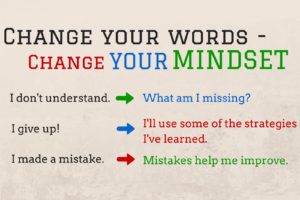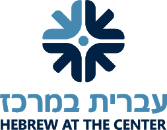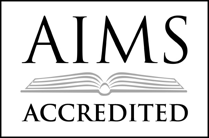Starting the New Year Like an Aleph – Cultivating a Growth Mindset in 5777
October 5, 2016 by
 I have been spending time visiting classrooms, getting to know the students, and telling them a story about why Aleph is the first letter of the aleph-bet: the print Aleph (א) is the only letter that is “open” on all sides, with many access points. After the story, we talk about being open to new beginnings and I ask them to create a small card showing something they are “open to” this year. I’ve heard many thoughtful and charming responses. But one child was stuck. “I don’t know… not reading. I’m not good in reading,” a student told me this week. Luckily, a nearby classmate came to the rescue, saying, “You can be open to reading! If you keep trying, your reading brain will grow!”
I have been spending time visiting classrooms, getting to know the students, and telling them a story about why Aleph is the first letter of the aleph-bet: the print Aleph (א) is the only letter that is “open” on all sides, with many access points. After the story, we talk about being open to new beginnings and I ask them to create a small card showing something they are “open to” this year. I’ve heard many thoughtful and charming responses. But one child was stuck. “I don’t know… not reading. I’m not good in reading,” a student told me this week. Luckily, a nearby classmate came to the rescue, saying, “You can be open to reading! If you keep trying, your reading brain will grow!”
This is what we call a growth mindset, the belief that ability and intellect are not innate or fixed but rather cultivated, developed, and enhanced through effort and practice. Its presence in the classroom is no accident – it is the result of modeling, careful language, and constant reinforcement on the part of the teachers. This summer, the JPDS-NC staff read Carol Dweck’s Mindset and discussed the book in small groups during our teacher work week in August. These rich book discussions set the stage for daily, intentional interactions with students and colleagues to foster a growth mindset, and we are starting to see the results blooming in our classrooms at all ages.
A shift in adult language is crucial. “You are so good at math!” implies that ability is innate and any potential math errors indicate personal failure; the child learns not to attempt any math task that might be too challenging. “I am so impressed with all the strategies you used to solve that problem,” on the other hand, praises the student’s effort, which in turn inspires the student to continue putting forth effort. Feedback such as “You are working so hard on your writing and I can see how much better this draft is than the first one,” “I appreciate how you and your partner are learning from each other’s ideas,” or “Your reading muscles are getting so strong from all the ‘exercise’ you are giving them!” reinforce the idea that we can all improve, learn, grow, and change – even in areas that are more challenging.
Having a growth mindset means taking risks, and becoming comfortable trying, and trying again, and perhaps again, and again. As one JPDS-NC teacher is often heard saying, “If you aren’t making mistakes, you aren’t trying hard enough.” In a supportive, child-centered environment, mistakes are among our best opportunities for learning and growth, and are celebrated as such. We are constantly modeling and guiding our students to internalize that effort, not innate ability, is what matters – and you can help! I would encourage you all to read Mindset and join us for our Community Read Breakfast. Mindset is a relatively quick read and offers valuable insight into the ways you can nurture a growth mindset in your children.






